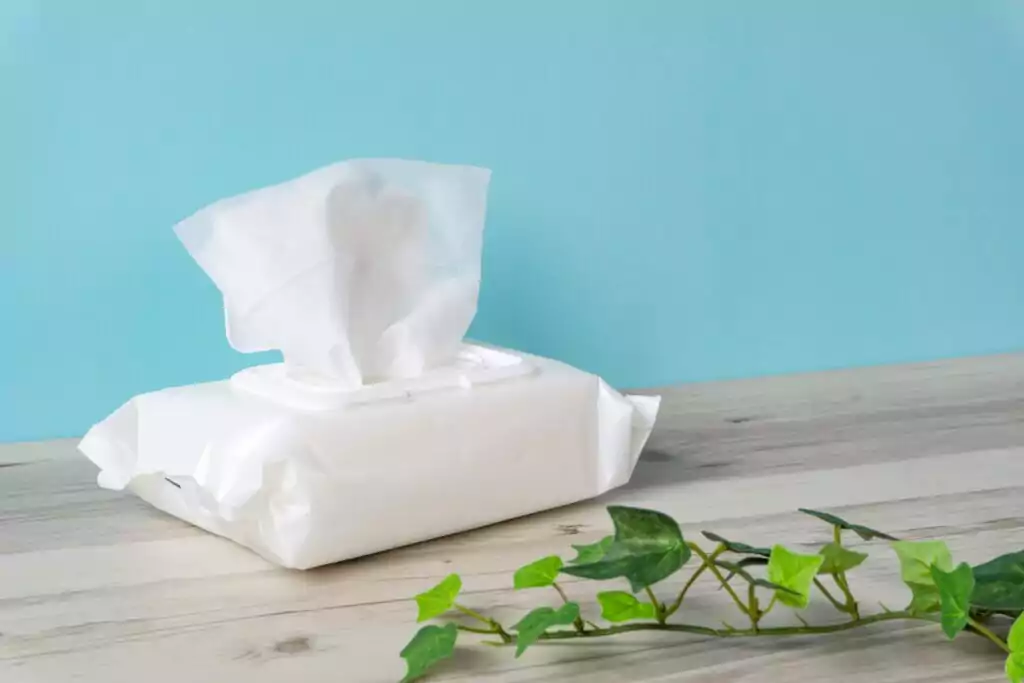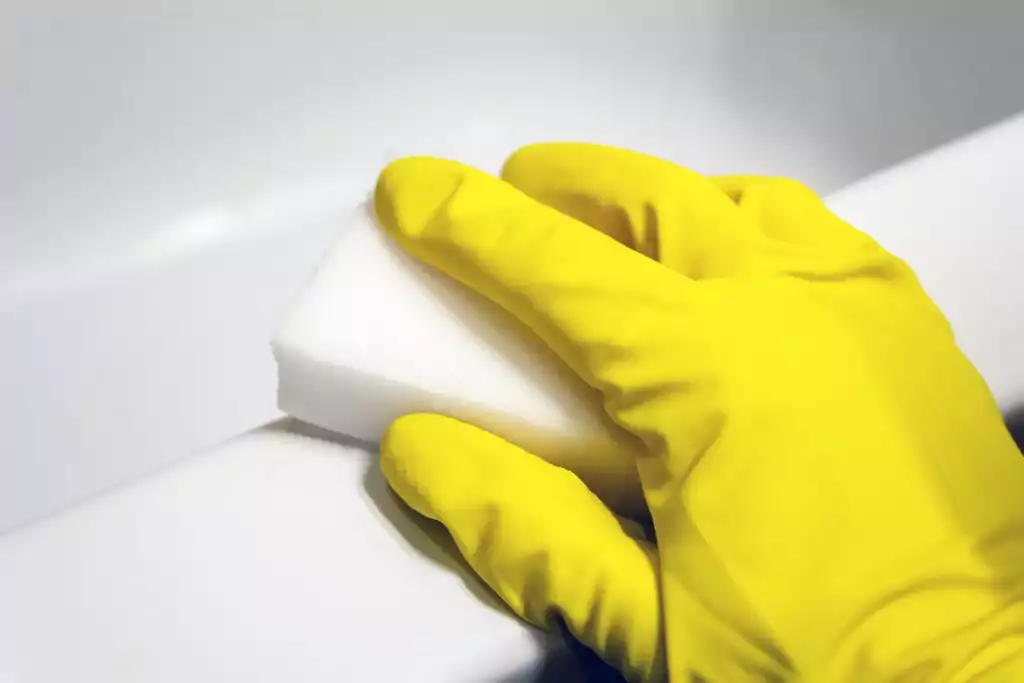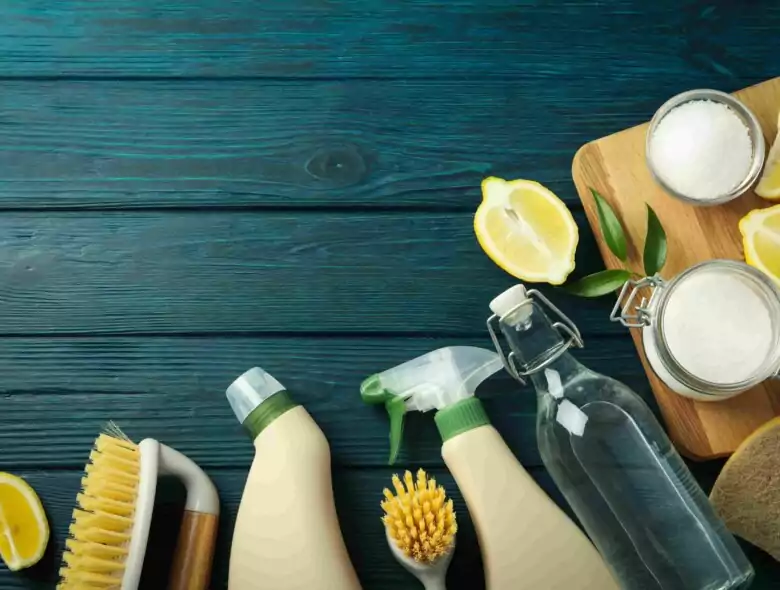One thing that you won’t find lacking in Japan, aside from convenience stores, are the abundance of 100 Yen shops (dollar stores, Poundland). From Daiso to Seria to CanDo, these stores offer everything from snacks to room décor to stationery to cutlery all at the price of 100 Yen a piece (¥110 with tax).
Another necessity that you can find at these shops are household cleaning products. So if you’re looking to spruce up your abode on a budget, read on to explore 5 common 100 Yen cleaning products that are not only non-abrasive on your wallet but can also be friendly to your skin and household surfaces.
Also, if you’re planning on moving out of your current abode, it’s best to give the place a general scrub down in order to maximize your chances of getting your deposit back in full. It’s customary for many rental companies, like Village House, in Japan to charge a cleaning fee upon vacating the premises (1,210 yen m/2 for Village House). While you don’t need to leave the unit spick and span, giving it a once-over will make the resulting inspection easier.
Citric Acid Cleaner
A mild organic acid found as an active ingredient in numerous household products, this cleaner can be found in spray or powder form, or as a wet wipe cleaning sheet at 100 Yen stores throughout Japan. This cleaner works by lowering the pH levels of bacteria, which means it can effectively pierce through the cell walls of bacteria, mildew, and mold. This makes it good as a less harsh alternative to bleach and as a disinfectant.
Due to citric acid cleaners being composed of mostly natural ingredients, it’s generally considered safe to use all over the house and is eco-friendly. This cleaning product can be used on and in bathrooms, toilets, kitchens, coffee machines, humidifiers, stovetops etc. to lightly descale surfaces, remove water stains, mineral deposits, mold, grease etc.

Disposable Cleaning Wipes
Disposable cleaning wipes are essentially like baby wet wipes but for household cleaning purposes. As mentioned in the name, they are disposable meaning they’re a one and done kind of cleaning product – you throw them away once they’ve been used.
Many 100 Yen stores have an entire shelf, if not section, dedicated to disposable cleaning wipes and depending on what you need cleaned, there are wipes specifically for disinfecting and wiping down the inside of your microwave; to deodorize and mop up stains in your refrigerator; to soak up the grease and oil splatter stains on your stovetop; or to attach to a Swiffer mop to clean your floors. There are also disposable cleaning wipes dedicated to cleaning your toilet and these wipes are designed to be flushed down said toilet after.
Disposable cleaning wipes can come in dry and wet forms depending on what you need them for.

Melamine Sponge
Melamine sponges are a type of foam like material that are texturally fun to squeeze in your hands like stress balls but are tougher than they look and feel, cleaning wise. They are composed of melamine-formaldehyde condensate, which is an active ingredient in abrasive cleaner sponges; so while they feel soft and squishy, they actually act like fine sandpaper against surfaces.
This makes them highly effective cleaning tools for removing stains, grease, paint marks, marker and crayon marks, oil, water stains, mineral deposits etc. from surfaces when soaked in water.
Despite them being “abrasive”, melamine sponges are still gentle enough to be used on stainless steel and aluminum surfaces, on wood and ceramic surfaces, on tiles, chrome, and even fiberglass.
Fun fact: they are also a cheap and easy alternative for insulation and soundproofing purposes.

Microfiber Cloth
Microfiber clothes are called such because they contain fibers that are 1 denier or less. A “denier’ refers to “fineness equal to a unit of fiber that weighs one gram for every 9,000 meters” or in layman’s terms: the fibers are teeny tiny; smaller than a strand of silk.
Microfiber cloths are a much-improved alternative to cleaning clothes tea towels and paper towels because they are a positively charged material that attracted things like dirt, oils, grease, and germs, some of which are negatively charged.
This versatile cleaning product can be found in 100 Yen stores of different shapes, sizes, and colors; and are great for general dusting, removing streaks and smudges from glasses, windows, and mirrors, scrubbing down bathrooms, cleaning gadgets and household appliances, and even wiping down counters.
Sesqui
Short for sodium sesquicarbonate, sesqui cleaners are a type of all-purpose cleaning solution for your home. They are made from natural minerals and ingredients along with alkaline electrolyzed water, making them eco-friendly and generally non-abrasive on surfaces.
This cleaning product is particularly effective in getting rid of stains and sterilizing surfaces – the alkaline ions get rid of stubborn dirt from surfaces along with any germs that cause odors. This cleaner is also great to use in the kitchen as it tackles oil stains effectively; helps deodorize the inside of microwaves and refrigerators; removes smudges and water stains from mirrors and windows etc.
Sesqui cleaners can be found at 100 yen stores as a spray, in refill bags for spray bottles, or even as disposable cleaning wipes.
Conclusion
In conclusion, keeping your house clean and smelling like flowers doesn’t have to occur at the expense of your wallet. Take advantage of the numerous and plentiful cleaning products readily available in a 100 Yen stores found all over Japan. If close proximity to one of these delightful stores is a priority for you when looking for permanent accommodation, Village House has properties in over 1,000 locations in all 47 of Japan’s prefectures; so the chances of being near a 100 Yen store are pretty great.
Related articles:
- Adulting 101: Deep Cleaning Your Washing Machine
- A Fresh Start: Cleaning Your New Home
- Tips for Keeping a Clean Apartment in Japan
- How to Clean Walls in Japanese Apartments
- Useful Cleaning Tools



